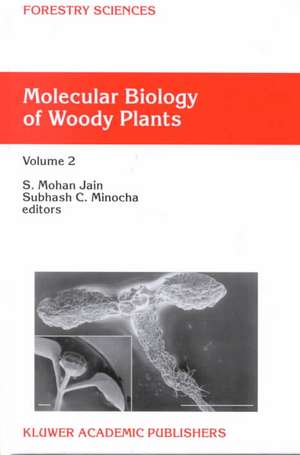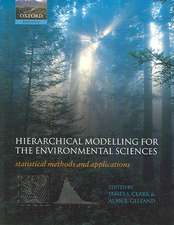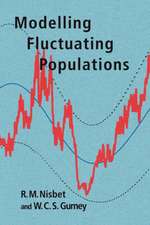Molecular Biology of Woody Plants: Volume 2: Forestry Sciences, cartea 66
Editat de S.M. Jain, S.C. Minochaen Limba Engleză Hardback – 30 apr 2000
| Toate formatele și edițiile | Preț | Express |
|---|---|---|
| Paperback (2) | 1227.84 lei 43-57 zile | |
| SPRINGER NETHERLANDS – 22 sep 2011 | 1227.84 lei 43-57 zile | |
| SPRINGER NETHERLANDS – 10 oct 2011 | 1234.14 lei 43-57 zile | |
| Hardback (2) | 1234.14 lei 43-57 zile | |
| SPRINGER NETHERLANDS – 30 apr 2000 | 1234.14 lei 43-57 zile | |
| SPRINGER NETHERLANDS – 30 noi 1999 | 1234.46 lei 43-57 zile |
Din seria Forestry Sciences
- 18%
 Preț: 958.56 lei
Preț: 958.56 lei -
 Preț: 388.13 lei
Preț: 388.13 lei - 15%
 Preț: 644.18 lei
Preț: 644.18 lei - 18%
 Preț: 1848.16 lei
Preț: 1848.16 lei - 18%
 Preț: 2105.44 lei
Preț: 2105.44 lei -
 Preț: 390.25 lei
Preț: 390.25 lei - 18%
 Preț: 950.33 lei
Preț: 950.33 lei -
 Preț: 390.84 lei
Preț: 390.84 lei - 18%
 Preț: 1226.73 lei
Preț: 1226.73 lei -
 Preț: 383.50 lei
Preț: 383.50 lei - 18%
 Preț: 950.33 lei
Preț: 950.33 lei - 18%
 Preț: 1234.77 lei
Preț: 1234.77 lei - 15%
 Preț: 637.28 lei
Preț: 637.28 lei -
 Preț: 387.58 lei
Preț: 387.58 lei -
 Preț: 385.62 lei
Preț: 385.62 lei - 18%
 Preț: 952.72 lei
Preț: 952.72 lei - 18%
 Preț: 1219.63 lei
Preț: 1219.63 lei - 18%
 Preț: 1229.73 lei
Preț: 1229.73 lei - 15%
 Preț: 647.59 lei
Preț: 647.59 lei - 18%
 Preț: 949.73 lei
Preț: 949.73 lei - 18%
 Preț: 946.10 lei
Preț: 946.10 lei - 18%
 Preț: 2762.55 lei
Preț: 2762.55 lei - 15%
 Preț: 644.95 lei
Preț: 644.95 lei - 18%
 Preț: 1840.26 lei
Preț: 1840.26 lei - 18%
 Preț: 1228.15 lei
Preț: 1228.15 lei - 18%
 Preț: 1236.69 lei
Preț: 1236.69 lei - 15%
 Preț: 639.73 lei
Preț: 639.73 lei - 18%
 Preț: 1847.21 lei
Preț: 1847.21 lei
Preț: 1234.14 lei
Preț vechi: 1505.05 lei
-18% Nou
Puncte Express: 1851
Preț estimativ în valută:
236.23€ • 256.68$ • 198.56£
236.23€ • 256.68$ • 198.56£
Carte tipărită la comandă
Livrare economică 21 aprilie-05 mai
Preluare comenzi: 021 569.72.76
Specificații
ISBN-13: 9780792362418
ISBN-10: 0792362411
Pagini: 516
Ilustrații: XI, 516 p. 48 illus.
Dimensiuni: 155 x 235 x 29 mm
Greutate: 0.92 kg
Ediția:2000
Editura: SPRINGER NETHERLANDS
Colecția Springer
Seria Forestry Sciences
Locul publicării:Dordrecht, Netherlands
ISBN-10: 0792362411
Pagini: 516
Ilustrații: XI, 516 p. 48 illus.
Dimensiuni: 155 x 235 x 29 mm
Greutate: 0.92 kg
Ediția:2000
Editura: SPRINGER NETHERLANDS
Colecția Springer
Seria Forestry Sciences
Locul publicării:Dordrecht, Netherlands
Public țintă
ResearchCuprins
1. Gene transfer techniques and their relevance to woody plants.- 2. Selection of marker-free transgenics plants using the oncogenes (ipt, rol A,B, C) of Agrobacterium as selectable markers.- 3. Agrobacteriumrhizogenes for rooting recalcitrant woody species.- 4. Genetic engineering of conifers for plantation forestry Pinus radiata transformation.- 5. Transformation of Picea species.- 6. Transgenic in Larix.- 7. Genetic transformation of Populus toward improving plant performance and drought tolerance.- 8. Progress on genetic engineering in four tropical Acaciaspp..- 9. Genetic engineering of rose (Rosa species).- 10. Transformation of Actinidia species (kiwifruit).- 11. Genetic transformation in Citrus.- 12. Olive (Olea europaea var. sativa) transformation.- 13. Transformation of Malus.- 14. Genetic transformation of Hevea brasiliensis (rubber trees) and its applications towards crop improvement and production of recombinant proteins of commercial value.- 15. Production of Transgenic oil palm (Elaeis guinensisJACQ.) using biolistic techniques.- 16. Molecular characterization of the mycorrhizas of woody plants.- 17. Molecular epidemiology tree pathogens.- 18. Development of insect resistance in fruit and nut tree crops.- 19. Structural and biochemical aspects of cold hardiness in woody plants.- 20. Herbicide tolerant forest trees.- 21. Cloning of defense related genes against pathogens in forest trees.- 22. Research Ethics for Molecular Silviculture.


















